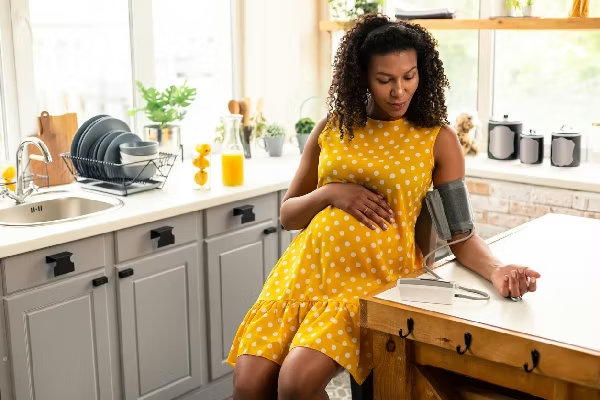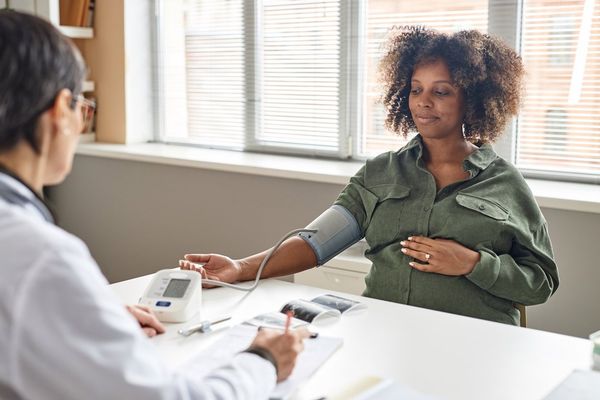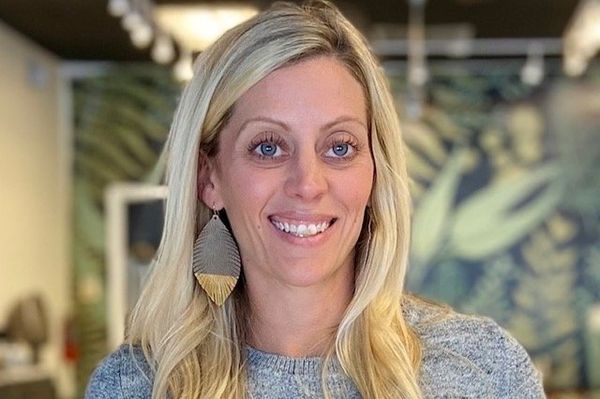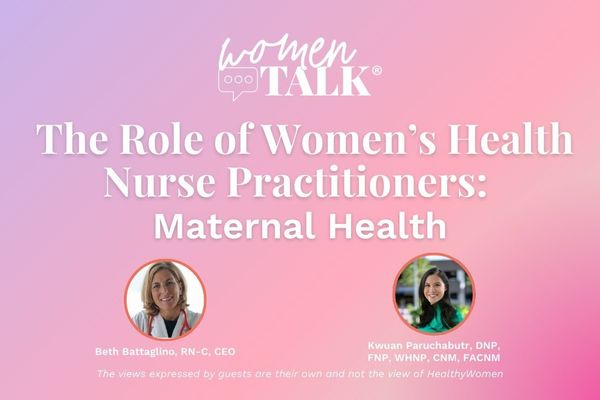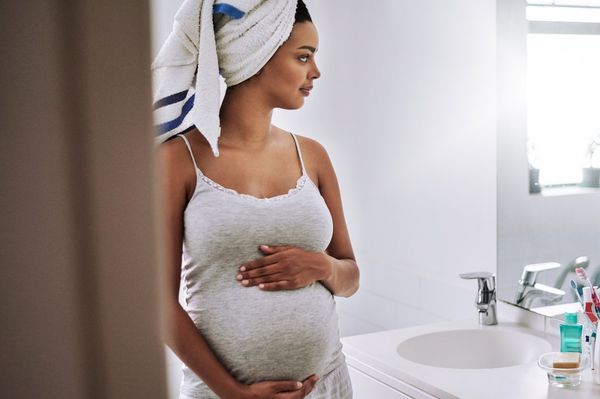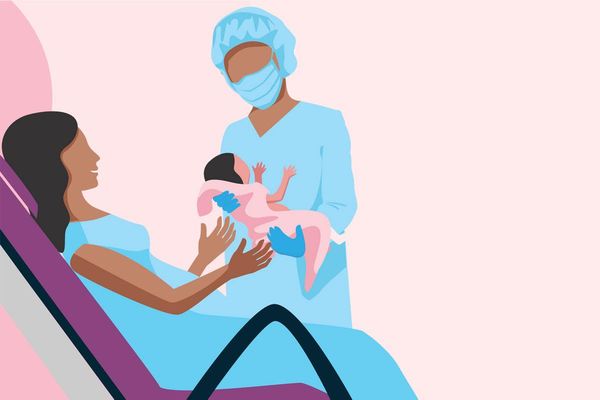Last week, I interviewed Rashmi Kudesia, M.D., an Ob-Gyn and member of HealthyWomen's Women's Health Advisory Council, for my article about staying safe during the outbreak of coronavirus, which causes the respiratory syndrome known as COVID-19.
Kudesia, who is also board certified in reproductive endocrinology and infertility, answered our questions via email from Houston about the potential impact of coronavirus on pregnant women and nursing mothers. We are publishing her complete remarks here to help answer your questions, with added links to the latest guidance and reliable information.
HealthyWomen: Can you please put the threat of coronavirus to pregnant women and nursing mothers in perspective? How much of a threat is it?
Rashmi Kudesia: The current pandemic, COVID-19, is a new viral strain and, as such, we are still learning a lot about its characteristics and the threat it presents. At the current moment, [guidance] from the American College of Obstetricians & Gynecologists suggest that there is not reliable data to quantify the threat to pregnant women and nursing mothers.
However, as with other coronaviruses that have become pandemic in the past, such as SARS and MERS, it seems reasonable to assume that as pregnancy suppresses the immune system, pregnant women are at higher risk for severe illness. The earliest report, limited by small numbers, is more reassuring, with measured risks for severe or critical disease being similar in pregnant women and the general population, but more research is needed.
There is some data suggesting an increased risk of obstetric complications, such as preterm birth. Additionally, the quarantine and isolation recommendations could cause some women to be temporarily separated from their newborn if they have COVID-19 right around the time of birth.
For nursing mothers, the threat of being quarantined away from their infant is perhaps the most severe. The Centers for Disease Control and Prevention suggest that the safest option might be for an individual who is well to feed a healthy infant expressed breastmilk to reduce the risk of mother-to-child transmission during breastfeeding.
HealthyWomen: Is coronavirus more of a threat to pregnant and nursing mothers than influenza?
Kudesia: In terms of severe illness, hospitalization and death to date, there is no question that the flu is more dangerous to pregnant and nursing mothers. Pregnant women take up an outsized proportion of influenza-related deaths each year, mostly among women who have declined vaccination. Of course, our knowledge of COVID-19 is still developing, but thus far, it is far more likely that a pregnant or nursing mother in the U.S. would be exposed to or face complications from influenza than COVID-19. If COVID-19 follows the more serious projections and becomes increasingly widespread, this could eventually change.
HealthyWomen: For those who are pregnant or nursing, what additional precautions should they take? For instance, can they still travel?
Kudesia: As of now, there are no travel restrictions aside from those applicable to all individuals. However, women should consider the implications of either coming down with a serious illness while traveling, or of being quarantined and unable to return home from travel. What [would] that mean for their prenatal care, their comfort and peace of mind, and if they have to deliver their child away from their intended obstetrician and hospital? The likelihood of these outcomes will depend on where they plan to travel, and how the virus continues to develop, but I would exercise caution, particularly as one gets closer to their due date.
However, there are many other common-sense precautions to take. The most important is handwashing, [meaning] frequent soap and water handwashing. Avoiding unnecessary contact with others and trying to limit touching one's face can [also] help reduce catching or spreading COVID-19.
Importantly, even if one has mild flu-like symptoms, it is important to discuss management with a physician before venturing into an urgent care or emergency room, as these clinical locations have a high potential for spreading disease. Mask-wearing has little impact on containing COVID-19 and hoarding masks is not advised as there is a current shortage, and they are much more needed and effective in health-care settings. However, if one has already purchased N95 ventilator masks and would like to wear them while in public, their chances of infection may be marginally reduced.
HealthyWomen: For those who are pregnant or nursing and get flu-like symptoms, what should they do?
Kudesia: First and foremost, speak with your physician. Barring true emergencies such as respiratory distress, do not go into an urgent care or emergency room unless directed to do so. Availability of COVID-19 testing is still limited and, as with most viral respiratory infections, treatment of mild symptoms is mostly supportive. The majority of reproductive-aged adults with COVID-19 infection have thus far experienced non-severe disease.
HealthyWomen: For those who are pregnant or nursing and test positive for coronavirus, what should they do?
Kudesia: They should plan to follow the developing guidelines from the CDC. The need to move to a hospital setting is determined by the severity of symptoms and may evolve with time. Some evidence has thus far suggested that the disease could worsen in the second week. Again, treatment so far is purely supportive.
HeathyWomen: Can nursing mothers continue to nurse if they have the virus?
Kudesia: The main concern for nursing mothers is spreading the virus to their child via airborne respiratory droplets. There is less concern about the virus being in the breast milk itself. Thus, nursing mothers may consider wearing a mask while nursing or having another healthy parent or adult feed the child using expressed breast milk.
HeathyWomen: Young children are in close interaction with one another and often pass colds and flu. What should parents of young children be doing to help protect their children?
Kudesia: In the US, there [are] not currently any [national] recommendations to keep children out of schools or daycare, and indeed, most families do not have immediate alternative options for childcare. However, if such options exist, and [parents] prefer to keep their children at home, particularly in cities with reported COVID-19 cases, this approach may be reasonable.
Advice may change if COVID-19 spreads further, but for now, [parents] of young children should encourage good hand-washing hygiene, monitoring their children closely for symptoms, and self-quarantining their children if they display any flu-like symptoms. COVID-19 has seemed to most severely impact older individuals or those with preexisting serious medical conditions and so the risk to children at this time remains low.
HeathyWomen: What resources do you recommend women turn to for more information?
Kudesia: The CDC is our main resource in the U.S., and my number one resource. Unfortunately, sometimes political agendas can influence what our governmental agencies report, and so I would keep abreast of recommendations and updates from the WHO as well.
HeathyWomen: Is there anything you'd like to add?
Kudesia: [I would like to] emphasize that women should get their flu shot. It is absolutely safe and recommended in pregnancy. Getting influenza and COVID-19 sequentially or simultaneously could be quite dangerous and is a plausible scenario if COVID-19 continues to spread.
HealthyWomen has lightly edited this transcript and inserted hyperlinks where relevant.
For more information & recent updates on coronavirus:
Centers for Disease Control and Prevention (CDC) Information on COVID-19 and Pregnant Women
Centers for Disease Control and Prevention (CDC) FAQ COVID-19 and Children
The American College of Obstetricians and Gynecologists (ACOG) Information on COVID-19


